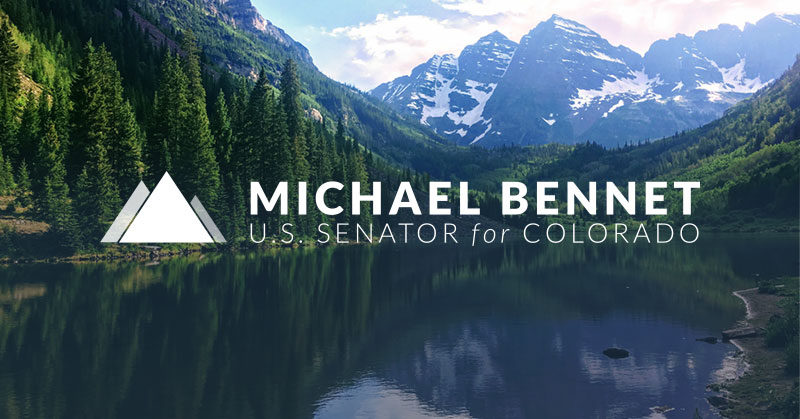Source: United States Senator for Colorado Michael Bennet
Denver – Today, U.S. Senator Michael Bennet (D-Colo.) and U.S. Representative Dean Phillips (D-Minn.) celebrated House passage of the Voter Choice Act as an amendment to the Protecting our Democracy Act, which passed the House 220-208. Senator Angus King (I-Maine) is also a co-sponsor of the Voter Choice Act.
“House passage of the Voter Choice Act is a milestone for ranked choice voting,” said Bennet. “At a time when intense partisanship threatens our democracy and blocks much-needed progress, ranked choice voting is a promising reform that can incent candidates to lower the temperature, build consensus, and better reflect the views of the American people. Now we’re going to do everything we can to get it across the finish line in the Senate.”
“Our democracy is at a crossroads. Amid historic division and partisan rancor, we must take meaningful action to improve our electoral system from the ground up,” said Phillips. “That is why, as cities, states, and even political parties – both red and blue – have recognized, we need ranked choice voting. RCV is simple, empowers voters, and rewards candidates who broaden support beyond their base. The Voter Choice Act provides financial resources and technical assistance to communities seeking to adopt RCV without imposing a mandate on communities not yet ready for change.”
In October, Senator Bennet reintroduced the Voter Choice Act to boost adoption of a ranked choice voting (RCV) model for elections, also known as an “instant runoff.” The Voter Choice Act provides $40 million in federal grants to cover up to 50 percent of the cost for local and state governments that choose to adopt RCV.
In most U.S. elections today, the candidate with the most votes wins. Under this system, a candidate can win even if they receive far less than a majority of all votes cast. Moreover, voters supporting third parties can inadvertently hand victory to candidates with views diametrically opposed to their own. This can make elections less representative of the voters and discourage political competition.
Instead of voting for a single candidate, RCV allows voters to rank candidates in order of preference. If no candidate earns a majority after counting first choices, the last-place candidate is eliminated. Voters for the eliminated candidate then have their ballot count for their next choice. The process repeats until one candidate earns a majority. Early evidence suggests that, by rewarding candidates for appealing to a broad swath of voters, RCV can discourage extreme partisanship, incent a greater focus on substantive issues, and ensure that election winners better reflect the views of most voters.
RCV is the fastest-growing election reform in America. According to FairVote, 22 jurisdictions used RCV in their most recent elections and another 20 will use it for the first time this November. Today, jurisdictions or political parties in 29 states have adopted some form of RCV for their elections:
- RCV used for statewide and presidential elections: Alaska and Maine
- RCV used for 2020 presidential primaries: Hawaii, Kansas, Nevada, and Wyoming
- RCV used for local elections: California, Colorado, Delaware, Florida, Maryland, Massachusetts, Michigan, Minnesota, New Mexico, New York, Oregon, Tennessee, Utah, and Vermont
- RCV used for military & overseas voting: Alabama, Arkansas, Georgia, Illinois, Louisiana, Mississippi, and South Carolina,
- RCV used for party elections: Texas and Virginia
The bill text is available HERE. A one page summary of the bill is available HERE.
